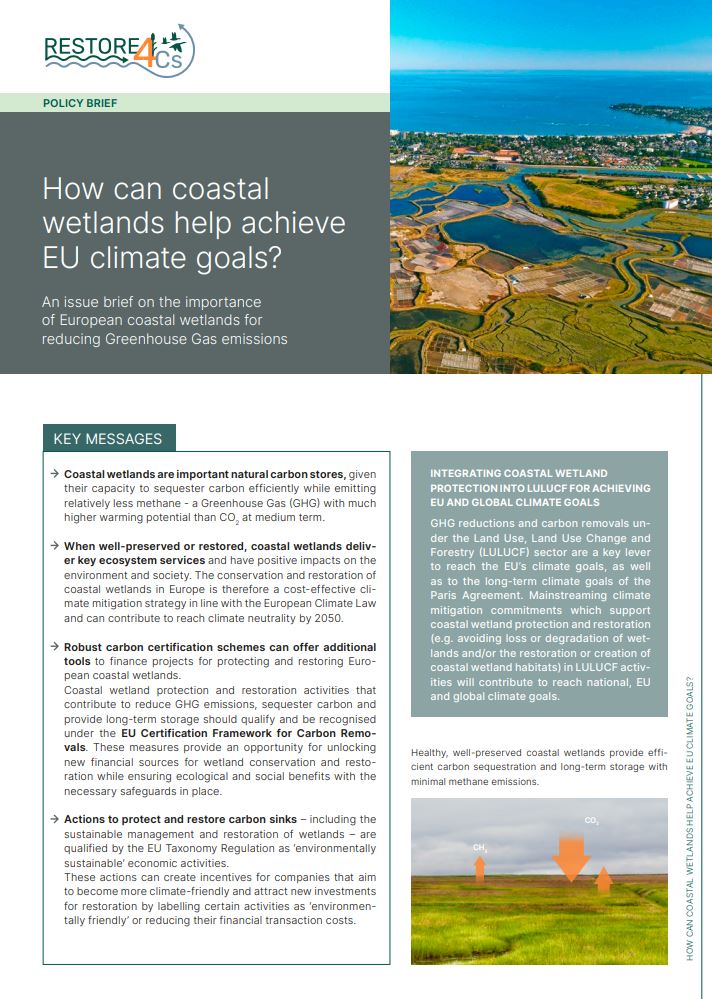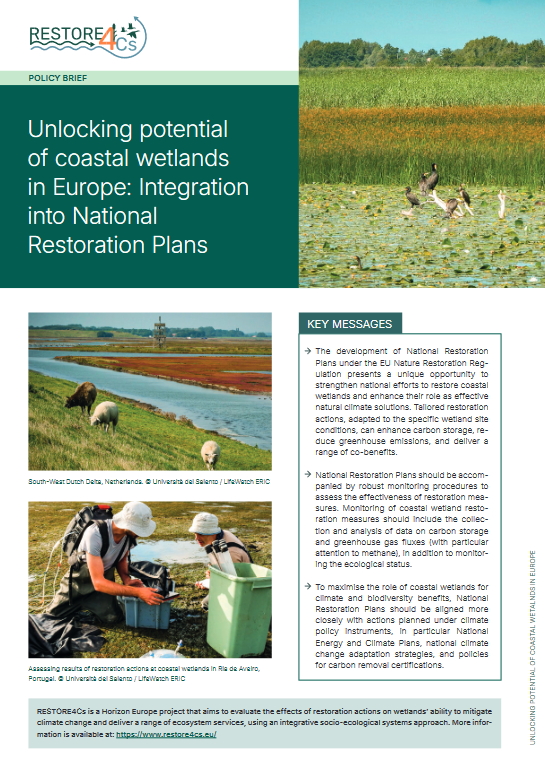How Can Coastal Wetlands Help Achieve EU Climate Goals?
A Policy Brief from the RESTORE4Cs project
- Publication
- Citation
Otero, M., Camacho, A., Abdul Malak, D., Kampa, E., Scheid, A., Elkina, E., 2024. How can coastal wetlands help achieve EU climate goals? Policy Brief. Restore4Cs project.
The first policy brief of the EU-funded RESTORE4Cs project highlights the importance of European coastal wetlands in reducing greenhouse gas emissions and removing carbon from the atmosphere, promoting their restoration as a climate change mitigation solution.
The next five years are crucial for reaching the 2030 climate goals and setting the course towards achieving climate neutrality by 2050. The policy brief argues that mainstreaming climate change mitigation commitments that support coastal wetland protection and restoration will contribute to the achievement of national, EU, and international climate goals. To support this, the policy brief presents the following key messages:
- Coastal wetlands are important natural carbon stores, given their capacity to sequester carbon efficiently while emitting relatively less methane – a greenhouse gas (GHG) with much higher warming potential than CO2 at the medium term.
- When well-preserved or restored, coastal wetlands deliver key ecosystem services and have positive impacts on the environment and society. The conservation and restoration of coastal wetlands in Europe is therefore a cost-effective climate mitigation strategy in line with the European Climate Law and can contribute to reach climate neutrality by 2050.
- Robust carbon certification schemes can offer additional tools to finance projects for protecting and restoring European coastal wetlands. Coastal wetland protection and restoration activities, which contribute to reduce GHG emissions, sequester carbon and provide long-term storage, should qualify and be recognised under the EU Certification Framework for Carbon Removals. These measures provide an opportunity for unlocking new financial sources for wetland conservation and restoration while ensuring ecological and social benefits with the necessary safeguards in place.
- Actions to protect and restore carbon sinks – including the sustainable management and restoration of wetlands – are qualified by the EU Taxonomy Regulation as 'environmentally sustainable' economic activities. These actions can create incentives for companies that aim to become more climate-friendly and attract new investments for restoration by labelling certain activities as 'environmentally friendly' or reducing their financial transaction costs.
The policy brief is available for download here.
This policy brief is a product of the RESTORE4Cs project, a Horizon Europe project in which Ecologic Institute participates. A consortium with 15 partners from 9 European countries analyses the role of restoration actions on coastal wetlands' capacity in terms of climate change mitigation and a wide range of ecosystem services using an integrative socio-ecological systems approach. Find out more about the project and its outputs here.





